

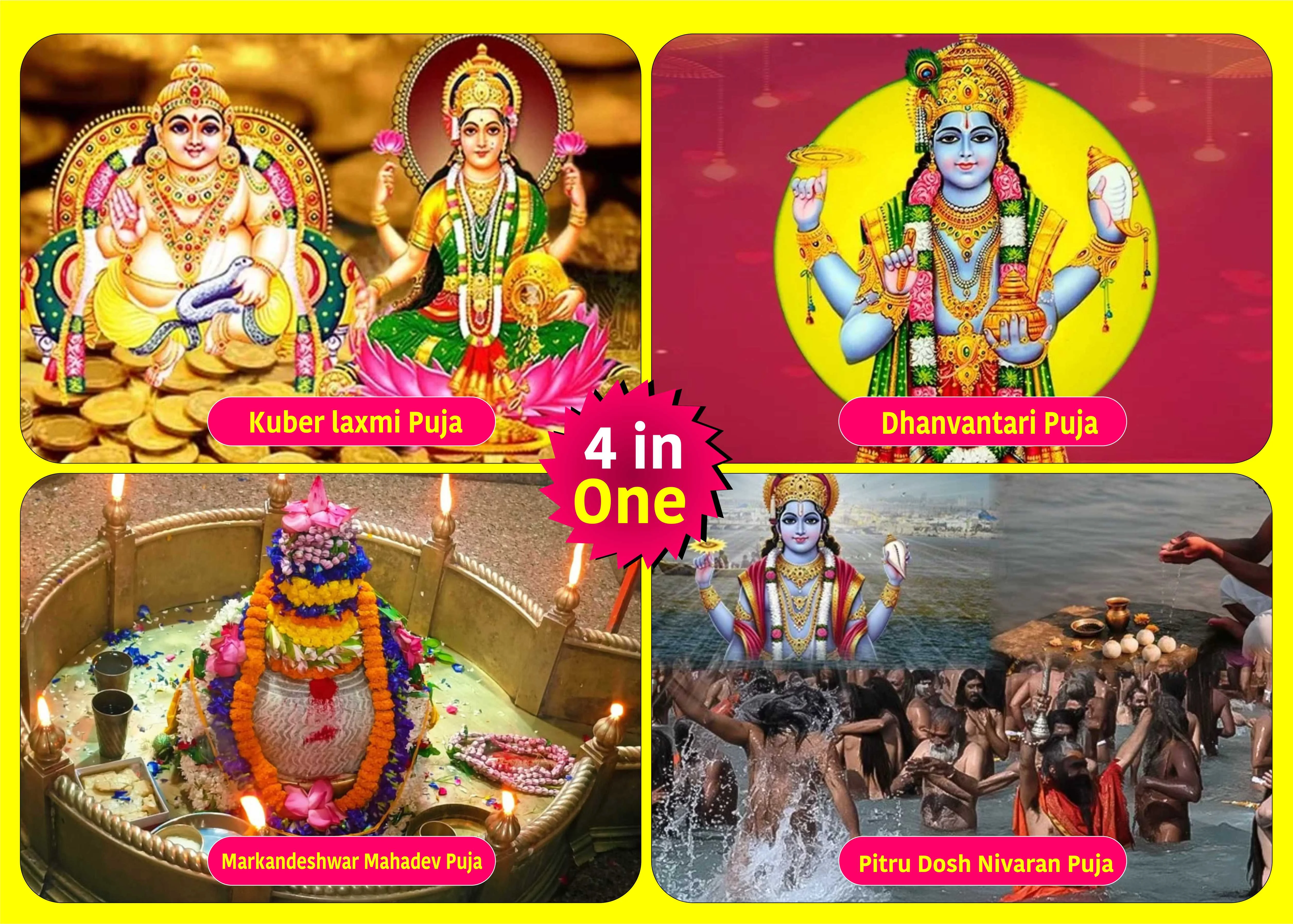





 How it Works
How it Works


Select Your Puja on Preferred date

Fill your Name, Gotra and Address
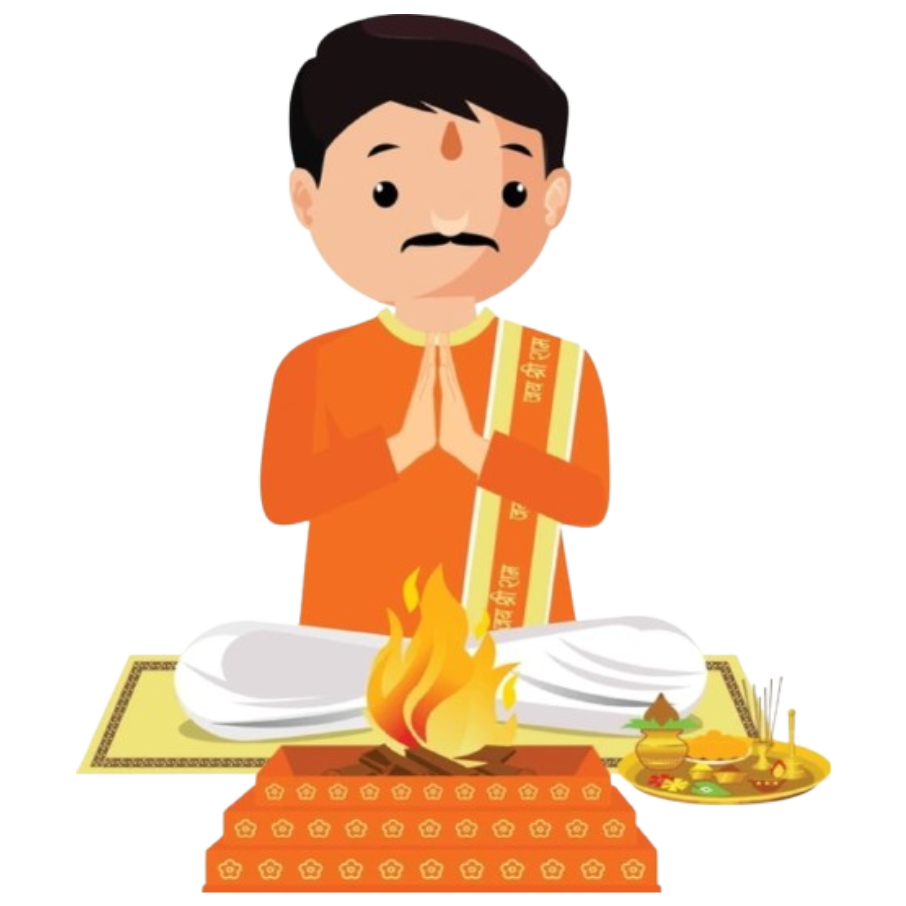
Your puja will be performed in the temple

You can watch puja video along with your sankalp timing

Your prasad will be delivered within 7–10 days after puja
 How it Works
How it Works











 4 Ways to Participate
4 Ways to Participate










 About Puja
About Puja

Sri Vaidhya-Narayan Dhanvantari Puja with 108 Dhanvantari Mantra Japa and Yagya is a sacred health-invoking rite seeking protection, vitality, and inner balance. Honoring Lord Dhanvantari—the divine physician holding the Amrita Kalasha—the puja unfolds with purification, sankalpa, lamp lighting, offering of tulsi/neem leaves, and melodious 108-count mantra recitation: “Om Namo Bhagavate Vasudevaya Dhanvantaraye…” The homa uses clarified butter and herbal offerings, invoking healing vibrations for the body, mind, and home. Concluding with Sri-Sukta/health hymns, aarti, and prasadam, this ceremony is sought for relief from ailments, support in medical treatments, speedy recovery, clarity for caregivers, and the overall well-being of the family. Lakshmi-Kuber Mahapuja & Yagya seeks prosperity with steadiness and wise use of wealth. Worshipping Lord Kuber with Goddess Mahalakshmi is said to aid cash-flow clarity, recovery of dues, income growth, and relief from debt. Steps include purification, sankalp, recitation of Sri Sukta and Kanakadhara, japa of “Om Hreem Shreem Kuberaya Namah,” and a homa with ghee, sesame, and grains. Devotees may sanctify yantras, account books or safes, offer deep-daan, and receive prasadam. Timely on Dhanteras–Diwali, new ventures, store openings, or fiscal closure, this puja prays for steady abundance aligned with dharma—benefiting family, charity, and growth. Shiv Mahāpuja and Rudrābhiṣek on the auspicious occasion of Dev Diwali invoke Lord Shiva’s grace for purification, protection, and inner awakening. As the celestial lamps are offered to Mother Ganga and the cosmos feels newly illumined, devotees perform Rudrābhiṣek—bathing the Śiva Liṅga with pañcāmṛt (milk, curd, ghee, honey, sugar), sanctified water, bilva leaves, fragrant flowers, and sacred herbs. Vedic chanting of Sri Rudram and Mahāmṛtyuñjaya mantra fills the atmosphere, dissolving negativity and pacifying adverse karmas and graha doṣas. Through a sincere saṅkalpa for family welfare, the puja seeks long life, health, harmony in relationships, clarity in decisions, progress in studies and career, and fearless devotion. The mahāpuja sequence includes purification, guru and gaṇeśa invocations, nyāsa, kalasha-sthāpana, offering of sixteen upacāras, continuous Rudrābhiṣek, and āratī with deepmālā. Devotees offer sesame, akṣat, and incense while priests recite namaka–camaka, amplifying the transformational power of sound. Concluding with prasāda and blessings, the rite aligns the individual with Shiva’s tranquil, compassionate consciousness. Performed on Dev Diwali—when the devas are believed to celebrate the victory of dharma—this puja is especially potent for removing obstacles, cleansing the mind, anchoring peace at home, and inviting sustained prosperity, courage, and spiritual light into one’s life. On the sacred occasion of Dev Diwali and Kartik Purnima, Pitru Dosh Nivaran Puja, along with Til Tarpan and Pind Daan, holds immense spiritual significance. This powerful ritual is performed to honor and pacify one’s ancestors (Pitras), seeking liberation for their souls and blessings for the entire family. According to ancient scriptures, unfulfilled desires or karmic debts of forefathers may cause Pitru Dosh, leading to obstacles, financial struggles, and emotional distress. By offering Til (sesame) and water through Tarpan and performing Pind Daan with devotion, devotees express gratitude and release their ancestors from earthly attachments. Conducted on Kartik Purnima — when divine energies are at their peak — this puja cleanses ancestral karma, removes doshas, and ensures peace and prosperity. Performing Pitru Dosh Nivaran Puja during Dev Diwali at sacred places like Varanasi (Kashi), Gaya, and Prayagraj is considered especially auspicious, as it grants salvation (Moksha) to departed souls. It also brings harmony, protection, and progress in the devotee’s life. Participating in this sacred ritual on Dev Diwali, the festival of lights for the Gods, symbolizes illuminating the path of ancestors towards eternal peace and divine blessings.
 About Temple
About Temple

Kashi Vishwanath Tirth Kshetra, nestled in Varanasi on the sacred banks of the Ganga, is one of India’s holiest pilgrimage realms and home to the revered Jyotirlinga of Lord Shiva. Pilgrims believe that darshan here grants inner purification, dissolves karmic burdens, and awakens steadfast devotion. The temple precincts hum with Vedic chants, bells, and aarti flames that mirror the city’s timeless rhythm—birth, death, and liberation entwined. Beyond the sanctum, ghats like Manikarnika and Dashashwamedh anchor an unbroken spiritual economy: daily snan, rudrabhishek, Ganga aarti, and parikrama. The wider kshetra holds shrines to Annapurna, Bhairav, and countless deities, guiding seekers through knowledge (vidya), discipline (sadhana), and grace (kripa). Recent revitalization has opened spacious corridors, easing the flow of devotees while preserving ancient sanctity. Yatris often combine darshan with Ganga jal offerings, Mahamrityunjaya and Rudra path, and sankalp for family well-being. In Kashi, Shiva is both Vishwanath—the Lord of the Universe—and intimate guardian of every heart. To step into this tirtha is to feel the axis of dharma turn: the mind quiets, faith deepens, and life’s journey realigns toward moksha. Here, eternity is not distant; it is present in every mantra and every breath. Triveni Sangam, situated in Prayagraj (Allahabad), Uttar Pradesh, is one of the holiest confluence points in India where three sacred rivers meet: Ganga, Yamuna, and the invisible Saraswati. This divine confluence is regarded as the most auspicious site for performing Shraddha, Pind Daan, and Pitru Tarpan rituals. Set amid deodar forests near Almora, Jageshwar Dham is a vast Shaiva complex of 125+ early-medieval temples; within it, the Kubera Temple sits on a hillock opposite the main cluster, offering a panoramic viewpoint over the valley. The shrine houses an Ekamukha Shiva-linga, and—unusually for Jageshwar—the doorway lintel bears an image of Kubera, symbolically linking Shiva with auspicious wealth. Local lore says devotees especially visit around Dhanteras and Diwali, offering silver coins or a “Kubera potli” while praying for prosperity. A short uphill walk/stairway from the main complex leads to the temple, making it a serene, rewarding detour. hri Dhanvantari Temple in Kashi is a revered shrine dedicated to Lord Vishnu’s healing manifestation—Bhagwan Dhanvantari. Nestled in Varanasi’s timeless lanes, it offers devotees a sanctuary for holistic well-being of body, mind, and spirit. The deity—adorned with the nectar-pot, conch, discus, and herb symbols—blesses visitors seeking health, longevity, and relief from ailments. Daily worship features aarti, japa of Dhanvantari mantras, and offerings like tulsi leaves, ghee, and herbal tokens. Around Diwali, Dhanvantari Jayanti is marked with special abhisheks, sankalps for wellness, and community prayers. Devotees believe vows made here, alongside proper medical care, bring swift, benevolent results. With Kashi’s sanctity, Ganga’s grace, and Dhanvantari’s compassion, this temple stands as a radiant center of healing, balance, and positive energy.
 Benefits of Puja
Benefits of Puja


Lakshmi-Kuber Puja energizes stable wealth, cash flow, and assets. Markandeshwar Mahadev’s grace reduces risks and sharpens decisions. With Pitru Dosh pacification, stuck avenues open. Together they curb wasteful outflows and support debt clearance, savings discipline, and long-term prosperity for family and business.

Dhanvantari Puja blesses immunity, recovery, and efficacy of medicines. Mahadev’s protection eases fear and stress. Ancestral appeasement removes lineage-linked health blocks. This synergy supports sustainable wellness, balanced habits, and positive medical outcomes across preventive care, ongoing treatments, and post-illness rehabilitation.

Markandeshwar Mahadev protects from untimely hazards; Dhanvantari augments vitality. Ancestral peace dissolves subtle blocks, while Lakshmi-Kuber ensures resources for safety. Collectively, the four create a robust shield—reducing life risks, strengthening resilience, and anchoring families through uncertain periods.

Pitru Dosh rites invite ancestral grace—unsticking efforts, aiding progeny, and uplifting the lineage. Lakshmi-Kuber nourishes resources; Dhanvantari stabilizes health. Mahadev purifies karma and deepens spiritual strength. Together they fortify family destiny with protection, momentum, and auspicious continuity.

Lakshmi-Kuber diversifies income and smooths receivables. Ancestral harmony revives stalled deals. Mahadev removes obstacles; Dhanvantari supports stress management for better decisions. The combo seeds durable customer trust, smarter investments, and steady expansion with disciplined cash flows.

Mahadev’s grace and ancestral peace dissolve subtle obstacles. Dhanvantari rebalances body-mind; Lakshmi-Kuber amplifies positive vibrations. The outcome is lower anxiety and confusion, with clearer focus and uplifting energy across home and workplace environments.

Ancestral blessings ease conflicts and support children’s progress. Lakshmi-Kuber provides resources, Dhanvantari secures health, and Mahadev offers protection. Together they cultivate love, mutual respect, and spiritual growth at home—creating balanced, enduring happiness.
 Devotee Corner
Devotee Corner

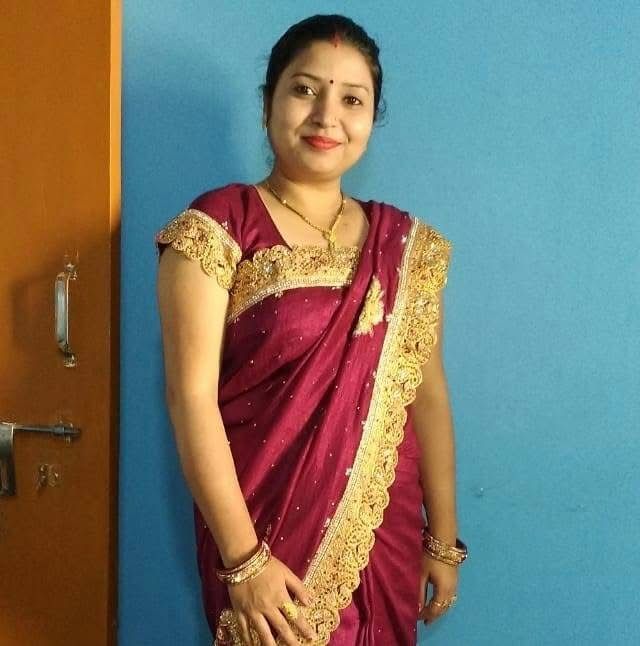
Mujhe ye Pooja karakar accha laga inhone acche se kiya aur mujhe bhaut accha laga aap bhi ye Pooja try kar sakte ho
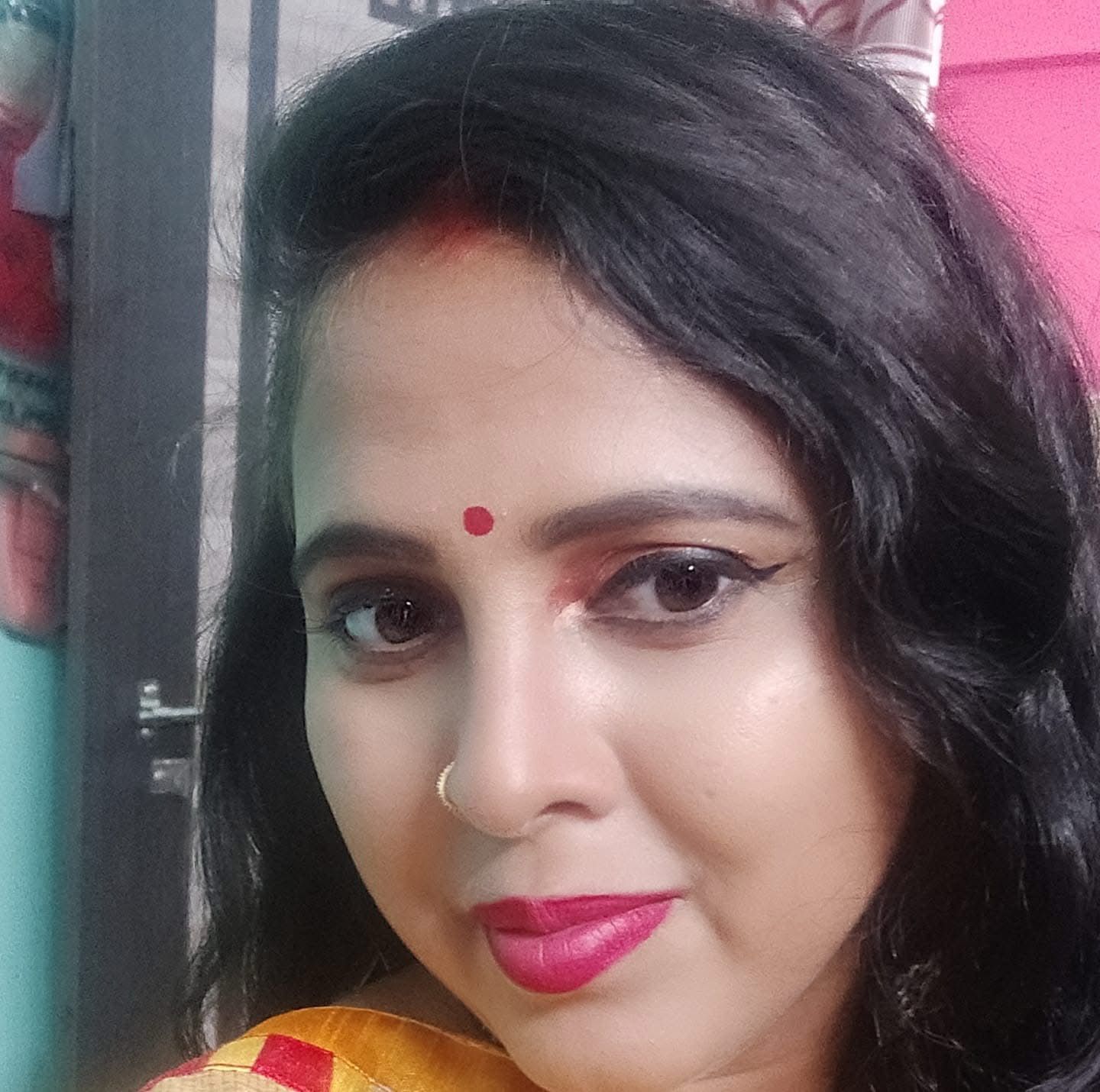
घर बैठे इतनी सुंदर पूजा में शामिल होना Bhaktimay की वजह से संभव हुआ 🛕📿। सच में, मन को शांति मिली 🙏💛। Bhaktimay की ऑनलाइन पूजा सेवा ने दिल जीत लिया 🌸✨। बहुत अच्छी व्यवस्था और सच्ची श्रद्धा 🙏😊।

Liked the fact that we can book Puja online with Bhaktimay, saving the effort of traveling for everything. Felt very nice to hear my name and gotra during the Puja. Prasad was also received on time, making the whole experience complete and satisfying.

अच्छा लगा पूजा करके, मन को शांति महसुस हुई। आज प्रसाद भी मिला, देवी मां का आशीर्वाद एवं दृष्टि सदा बनी रहे
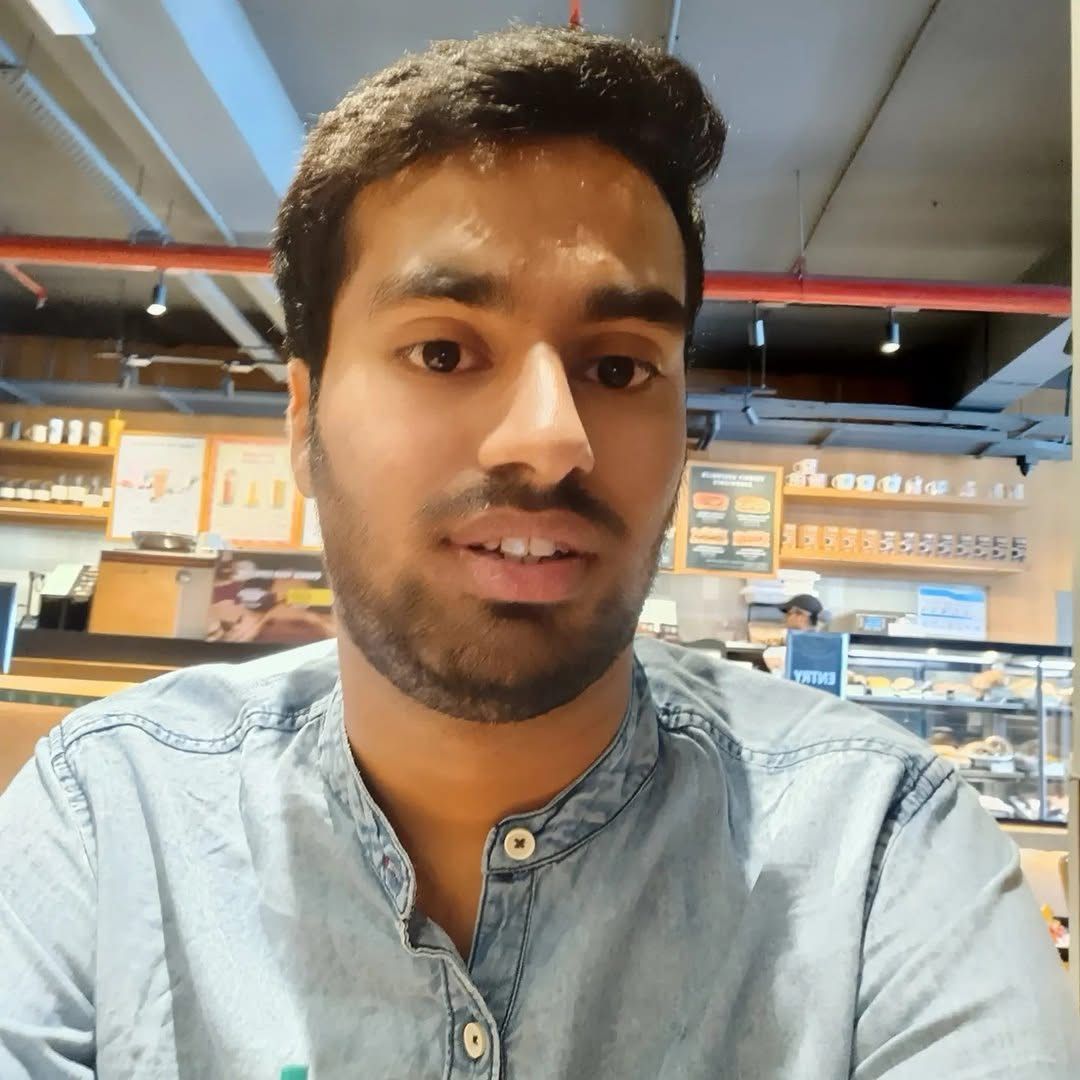
Grateful to Bhaktimay for a divine online Puja experience — felt truly blessed and connected from home!

I really like the whole process of Puja at Bhaktimay. Puja is conducted properly, and customer support is available throughout the process. I asked questions to the team, and they resolved all my queries with patience. Most genuine and authentic experience.
 FAQs
FAQs


 Subscribe
Subscribe

If you are interested in Upcoming Pujas, Offerings, Divine products and sanatan dharma, you can choose to subscribe Bhaktimay Whatsapp
 Chat on Whatsapp
Chat on Whatsapp
© 2025 Bhaktimay | With Devotion from the Heart of Bharat 🇮🇳